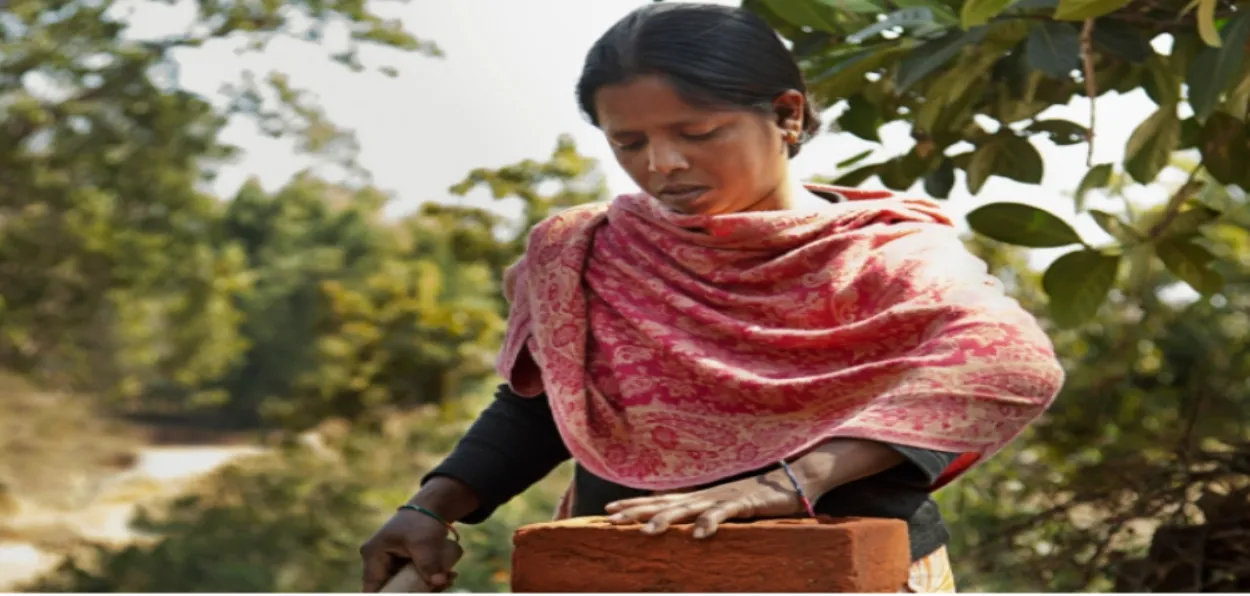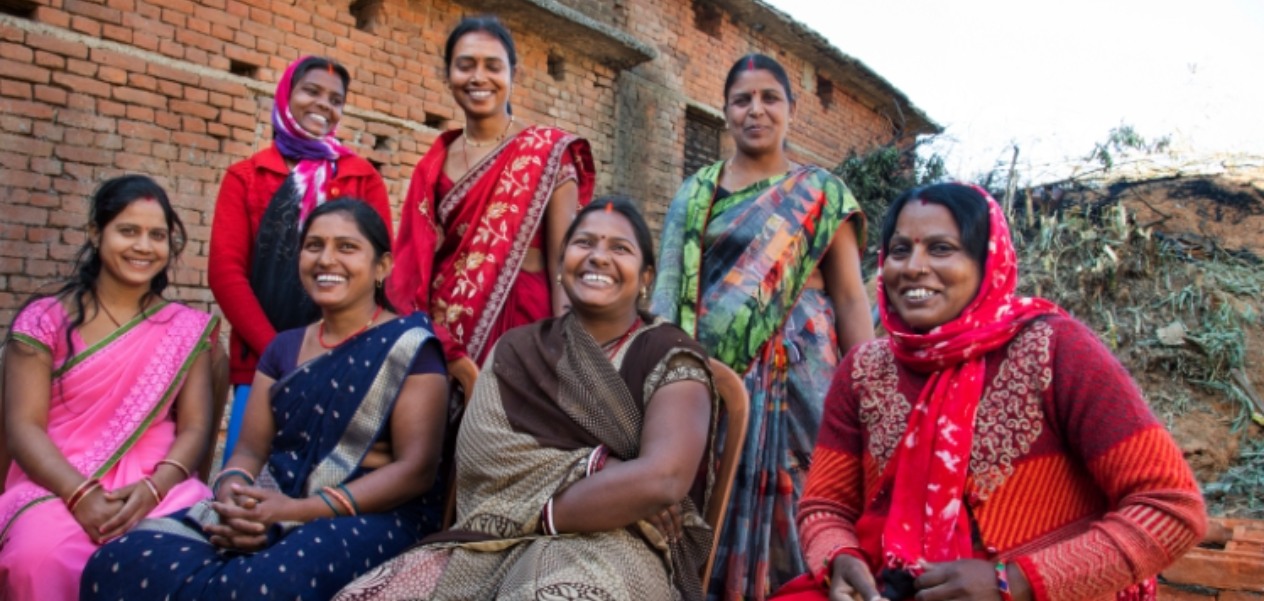
Manjit Thakur/New delhi
Nishat Jahan, 36, is the mother of two children. At the construction site, she lays bricks and fixed these with mortar to make walls. She does her work with the same passion with which she brings up her children and looks after her family.
Coming from a traditional Muslim family, Nishat Jahan could have never imagined that she would ever step out of her village unaccompanied.
For some reason her husband was jobless and to run the family, she, like other women in her village, worked as a farm hand to make some money for the family.
However, as more women started asserting their wish to become financially independent and due to the flight of male skilled workers from Bihar and Jharkhand to big cities, women like Nishat Jahan took the bold step of learning the skills needed for masonry work.

Jharkhand's Raj Mistris (World Bank)
Nishat Jahan received training at Ranchi. In this week-long program organized by the World Bank, she and other women were trained in the construction of toilets.
Recently, the locals in Silbar Khurd village in Hazaribagh, Jharkhand, were surprised at Nishat Jahan's speed of work. She usually raises the four walls of a toilet before the sun rises.
Nishat Jahan and her friend Usha Rani are engaged in the construction of toilets in this particular village.
The World Bank has published a report on women engaged in construction work. According to it, 50,000 women have been trained as masons for construction work in Jharkhand. Nishat Jahan is one of them.
The 40-year-old Urmila Devi is engaged in the construction of a toilet near a roadside dhaba located a little far from the place where Nishat and Usha are at work.
.jpg)
An all-women team constructing a toilet in a Jharkhand village
The World Bank report says Urmila Devi has so far constructed more than 1,000 toilets. Urmila went to Champaran in Bihar to work as a mason for the construction of toilets.
Poonam Devi, another mason, has so far constructed 900 toilets in the last year.
In India and probably across the world, masonry is often seen as men’s work. Out of respect for his skills, the masons are called Raj mistri (The chief of labourers).
Traditionally, women worked as helpers at construction sites in India. They often do head load work of carrying bricks to the mason, preparing mortar, and following all instructions of masons.
As women in Bihar and Jharkhand break into this male bastion, they are given a new title – Rani mistri (the Queen worker)
According to the World Bank report, for the first time, these women picked up the masonry work it was under the massive programme to promote the construction of toilets under the Swachh Bharat Mission.
As most of the men had migrated to the big cities for India’s massive thrust on infrastructure projects, the World Bank decided to empower women.
Nishat and Rani attended the week-long training sessions in Hazaribagh and learned the techniques of making soak pits and twin pits.
After a week they were given practical training to work under senior masons.
So far, more than 50,000 skilled women masons in Jharkhand have contributed their best in the campaign to make the state free from open defecation.
Jharkhand is one of the states that got technical assistance from the World Bank for planning and implementing the Swachh Bharat Abhiyan.
.jpg)
Rani mistris relaxing after the day's work
As part of this technical assistance, the World Bank conducted training programs to train masons to build toilets, and women workers participated in many of those programs.
However, initially, the people of the village, especially the women themselves, were reluctant.
Many families were against their women going out to work and doing something that should be done by men.
However, these women managed to break free of taboos. Even while working as labourers earlier, these women could not even think of going out of their village.
They either did their household chores or worked as laborers in the fields.
Life has changed for them after becoming Rani Mistris.
The earnings of these women have doubled since their days as daily wage-earning unskilled labourers.
ALSO READ: Sajna Ali's wanderlust made her launch a company to cater to solo women travellers
Seeing the rise of Rani Mistris, women are coming forward to work as plumbers for the Jal Jeevan Program (Haar Ghar Nal), India’s massive scheme to make potable water available to all.
